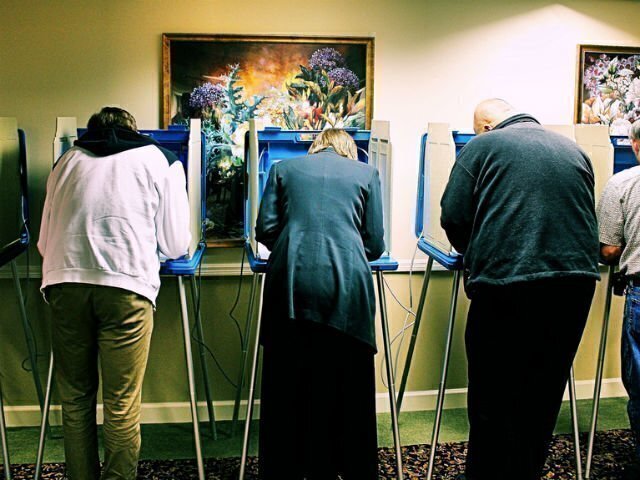The 2016 presidential primary season kicks off on February 1 with the Iowa caucuses, but little attention is given to the various state-by-state protocols that determine how these important elections are run. There is the rare debate over open or closed primaries; there is the occasional explanation of the difference between caucuses and primaries. But the basic rules are rarely discussed, outside of policy wonk circles and party committees.
Today, the states hold considerable power in determining the rules for all elections that happen within their borders. In general elections, states decide which method of voting will be used, whether felons can vote, and whether voters must show some form of identification at the polls. In primary contests, state parties run caucuses, but state governments conduct primaries.
States set many rules of primary elections; they choose the date and determine if the primary will be open or closed. Yet they do not have absolute power—for example, the U.S. Supreme Court struck down a voter-approved law requiring “blanket” primaries in California. Plus, the political parties determine how delegates will be assigned in light of primary results.
An important layer in this system is the federal government, which mandates that all federal elections, primary or otherwise, be held in accordance with the Voting Rights Act. This ability is derived from its enforcement power under the 15th Amendment.
In the early 20th century, some state primary rules were highly controversial and the subject of multiple Supreme Court decisions. Legal challenges helped shape the structure of primaries today, and animated discussions about the constitutional authority of states to curb private discriminatory actions.
In 1923, Texas passed a law forbidding blacks from participating in the Texas Democratic Party primary. When Dr. L.A. Nixon was denied access to the polls on account of his race, he sued the state of Texas, claiming that the restriction violated his constitutional guarantee of equal protection. The Supreme Court struck down the restriction, with Justice Oliver Wendell Holmes writing that it was “hard to imagine a more direct and obvious infringement” of the 14th Amendment.
In response to the Court’s decision, the Texas Democratic Party instituted a rule prohibiting blacks from participating in its primaries, which was similarly challenged as a 14th Amendment violation. But the Court ruled unanimously in favor of the Texas Democratic Party, finding that the situation at hand was fundamentally different than that in the earlier case.
The Court explained that the Democratic Party was a private organization and could determine for itself its eligibility and membership requirements. The scope of the 14th Amendment was constrained by the “state action doctrine,” meaning that it guaranteed equal treatment only under governmental action and could not regulate the actions of private organizations like the Democratic Party.
Nine years later, however, the Court reversed this decision in Smith v. Allwright, in which it adopted a broader conception of “state action.” It reasoned that primary elections are an integral component of general elections and the democratic process. As a result, primaries must be seen as sanctioned by the state and are therefore subject to 14th and 15th Amendment scrutiny. Despite the fact that the Democratic Party was a private organization, the Court acknowledged that disenfranchisement from primary elections is a denial of voting rights and rectified the situation.
The Court has since continued to expand its conception of state action and ruled that guarantees of equal protection can often apply to private organizations. In 1948, the Court ruled that courts could not uphold contracts that did not allow blacks to purchase homes, because such enforcement counted as state action. It later decided that actions by a private business that leases public property were subject to state action constraints.
Later, the Civil Rights Act of 1964 banned private discrimination on the basis of the Commerce Clause, and the Voting Rights Act of 1965 instituted further protections to ensure that no one would be denied the right to vote on account of his or her race.
Still, as we barrel toward Iowa and New Hampshire, these cases provide a special insight into the development of primary elections and the application of constitutional guarantees.
Jonathan Stahl is an intern at the National Constitution Center. He is also a senior at the University of Pennsylvania, majoring in politics, philosophy and economics.








